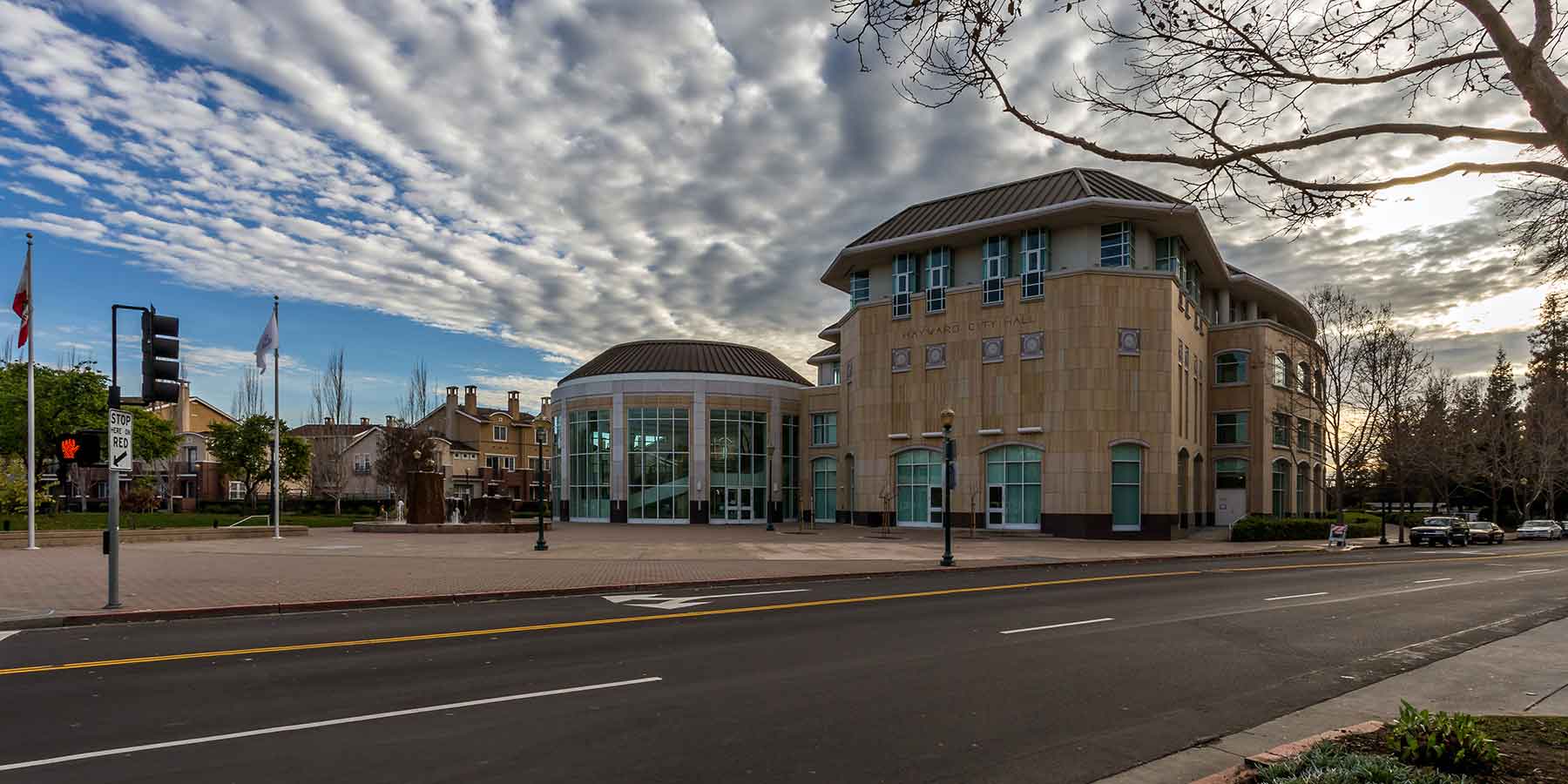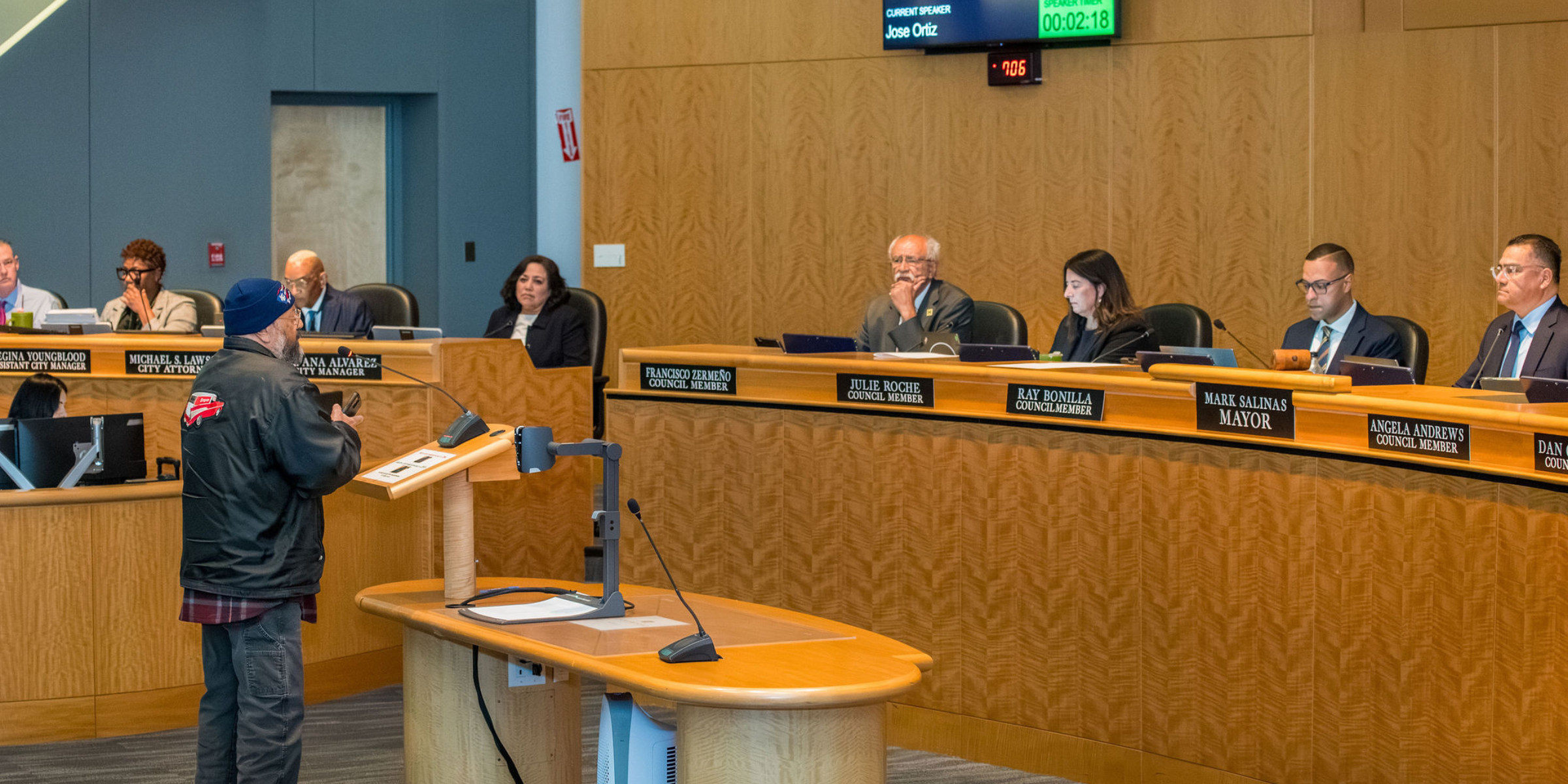Information for Tenants
Navigating the rental housing market can be confusing, we are here to help! We have put together information about rent increases, rent review processes, petitions, and tenant protections to help you understand your rights and responsibilities as renters in Hayward.
What do I do if I'm being evicted?
Your landlord must follow Hayward and State law. Your landlord must give you a written notice of termination of tenancy. If you receive a notice, you should consult an attorney and review the Alameda County Court self-help page. The City of Hayward cannot provide legal advice.
In Hayward, your landlord must list the reason for an eviction and it must be one of 16 just cause reasons. If the landlord does not state the reason for eviction, you can use this as defense against the eviction. If the reason for the eviction is a “no fault eviction”, your landlord may be required to pay you permanent or temporary relocation assistance.
What do I do if I can't pay rent?
The City and County COVID-19 rental assistance programs have closed. Please contact 211 for more information about rental assistance.
What do I do if I receive a large rent increase?
There are different rules that apply to how much your landlord can increase your rent. Your rental unit could be 1) protected by Hayward’s rent increase limits; 2) protected by the California Tenant Protection Act’s rent cap; or 3) have no protections against large rent increases.
In Hayward, only some covered rental units prevent large rent increases. If you live in one of these units and receive a large rent increase, there is a process for having the increase reviewed. You can contact the Rent Review Office to learn more and get help learning what rules apply to your rental unit.
What do I do if my landlord hasn't responded to my request for repairs?
If your unit needs repair, you should notify your landlord. Before renting a rental unit to a tenant, a landlord must make the unit fit to live in, or habitable. While the unit is being rented, the landlord must repair problems that make the rental unit unfit to live in, or uninhabitable. Please use the State’s guide for tenants for more information on how to talk to your landlord about repairs.
If your landlord does not respond to your request for repairs and you do not believe your unit is safe or habitable you can contact the City’s Code Enforcement Division.
If you live in a covered rental unit, you can also file a petition for review of rent if your landlord does not respond to your request and the property has health, safety, fire, building violations, or repairs that the landlord will not make.
If the necessary repairs create unsafe or uninhabitable living conditions, your landlord may be required to provide you with temporary relocation assistance during the time it takes to make the necessary repairs.
How much can my landlord charge me for utilities?
If you live in a covered rental unit, your landlord can only charge you utilities if your lease indicates that you are responsible for paying utilities. If you live in a covered rental unit and are already paying utilities as part of your lease and the cost increases by more than 1% of your rent, you can file a petition for review of rent.
As a tenant, you have the option to request from the landlord information that explains the increase in utility costs. You can review this infographic in English, Spanish, or Chinese for more information about utility increases for covered rental units.
If your unit is not a covered rental unit, you can review the State’s guide for tenants for more information on shared utility meters.
What do I do if I think I have experienced housing discrimination?
ECHO Housing provides free fair housing investigation and enforcement in response to reports of housing discrimination complaints. If you have experienced or witnessed discrimination based on race, color, ancestry, national origin, mental or physical disability, children, national origin, religion, sex, sexual orientation, gender, gender identity or expression, marital status, source of income, or any other arbitrary characteristic, please contact ECHO's program offices.
HUD enforces the federal Fair Housing Act, which protects people from discrimination when they are renting or buying a home, getting a mortgage, seeking housing assistance, or engaging in other housing-related activities. Additional protections apply to federally assisted housing.
You can file a complaint with HUD if you believe you are being discriminated against.
The Department of Fair Employment and Housing (DFEH) is responsible for enforcing state fair housing laws that make it illegal to discriminate because of a protected characteristic. The law applies to landlords, tenant screening companies, property management companies, real estate agents, home sellers, builders, mortgage lenders, and others. The law prohibits discrimination in all aspects of the housing business, including renting or leasing, sales, mortgage lending and insurance, advertising, practices such as restrictive covenants, and new construction.
Landlords also may not discriminate against you based on some sources of income, including rental subsidies (e.g., Housing Choice or Section 8 vouchers).
You can file a complaint with the State if you believe you are being discriminated against.
The City’s RRSO protects against discrimination for source of income. If you are trying to rent an apartment with rental assistance (e.g., Section 8 or Housing Choice voucher) and are denied because of your source of income.
Can my landlord ask me to leave during construction or repairs?
If your landlord is doing substantial repairs that create unsafe or uninhabitable living conditions, they may be required to pay temporary relocation assistance so that you can live elsewhere during the duration of the repairs. The amount, method, and timing of the payment varies depending on the duration of the repairs. You can review the Tenant Relocation Assistance Ordinance resources or contact the Housing Division (housing@hayward-ca.gov or 510-583-4454) for more information.
Is there any help available if I have to leave my rental unit due to a natural disaster, like a fire?
Your landlord does not provide insurance for your personal property. To protect your belongings, you should consider purchasing renter’s insurance, also known as “tenant’s insurance.” The renter’s policy may be used to provide coverage for your personal contents located in the property that you occupy. Coverage is also provided for loss of use, personal liability protection and medical payments to others.
Low income households with a qualifying disaster may be eligible for emergency relocation assistance from the City of Hayward. For more information, contact the Housing Division at housing@hayward-ca.gov or (510) 583-4454.
What do I do if my landlord is trying to pressure or intimidate me?
The City’s Residential Rent Stabilization and Tenant Protection Ordinance protects renters from harassment and retaliatory eviction from their landlords. Harassment is an intentional act directed at the tenant that would cause a reasonable person to fear the loss of their unit or a service they’re paying for. It could also interfere with the tenant’s peaceful enjoyment of the use of their rental unit.
If you believe your landlord is harassing you, you should consult an attorney. The City has a list of free or low cost legal resources.
What do I do if I have issues with my neighbors?
We encourage you to talk with your neighbors to resolve issues. For rental properties, your lease may provide protections against some behaviors that are against the rules (e.g., smoking indoors, noise violations, pet waste, parking, trash disposal, etc.). You can reach out to your property manager or owner for more information.
If you feel like you are at immediate risk of harm or danger, you should call 911.
Where can I find an affordable place to rent?
If you are currently homeless or are at imminent risk of becoming homeless, please call 211 for assistance. You can also visit the HEDCO Wellness Resource Center at 590 B St #5004, Hayward, CA 94541 or call them at (510) 247-8235.
Households that are income eligible can view current affordable rental options in Hayward through Eden Housing. You can also search for options through the East Bay Rental Organizations Affordable Housing Guidebook.
Alameda County also has a portal of currently available rental options.
The City of Hayward is actively working with local developers to build more affordable housing opportunities. You can see what projects are currently in development.








